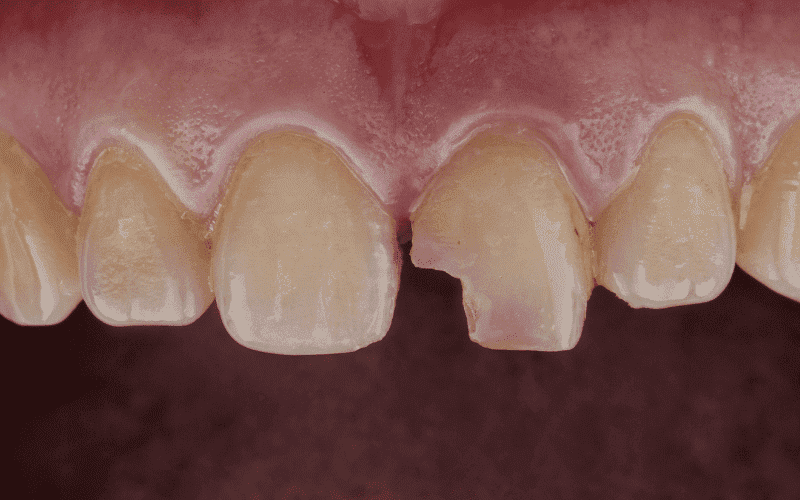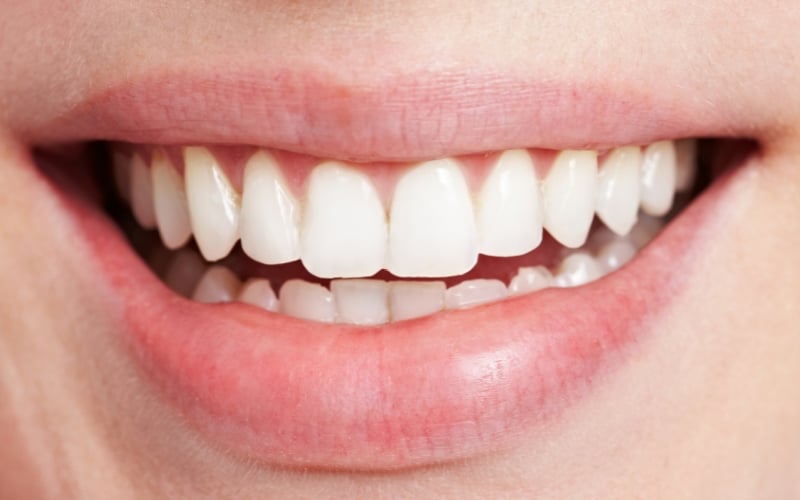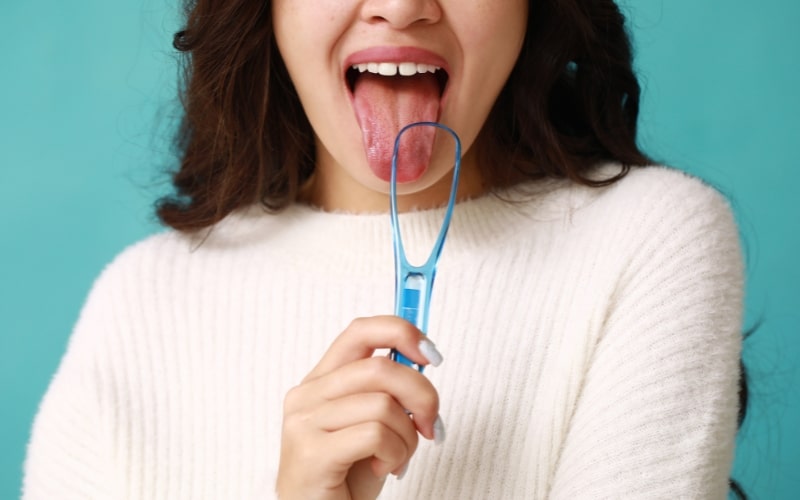ONLINE SCHEDULING AND VIRTUAL CONSULTS AVAILABLE

Chipped Tooth: Immediate Steps and Treatment Options

Dealing with a chipped tooth can be a startling experience, whether it happens during a sports activity, biting into something hard, or even just a slip or fall. However, knowing how to respond promptly can make all the difference in minimizing discomfort and preventing further damage. In this blog, we’ll explore the immediate steps to take, the treatment options available, and how to prevent future occurrences, ensuring you’re equipped to handle this common dental mishap with confidence.
When faced with a chipped tooth, it’s essential to act swiftly. Whether it’s a minor chip or a more severe fracture, seeking guidance from an emergency dentist can provide invaluable assistance. By understanding the underlying causes of toothchipping and knowing the appropriate steps to take, you can navigate this dental emergency smoothly.
Join us as we delve into the world of chipped teeth, offering practical advice and expert insights to help you navigate this unexpected dental dilemma.
Understanding Tooth Chips
Understanding the factors contributing to toothchipping is crucial for effectively managing this dental concern and preventing future incidents.
What Causes Tooth Chipping?
- Trauma: Accidents, falls, and sports injuries can result in sudden impacts that cause teeth to chip or fracture.
- Biting Forces: Excessive force applied while chewing on hard objects or foods can weaken tooth enamel and lead to chipping.
- Tooth Decay: Untreated cavities weaken the tooth structure, making them more susceptible to chipping.
- Poor Oral Hygiene: Neglecting regular brushing, flossing, and dental check-ups can lead to weakened enamel and an increased risk of tooth chipping.
- Bruxism: Habitual teeth grinding or clenching can exert excessive pressure on teeth, increasing the likelihood of chipping.
Identifying the Severity of a Chipped Tooth
- Minor Chips: Small chips that affect only the outer enamel layer and do not cause pain or sensitivity.
- Moderate Chips: Deeper chips that extend beyond the enamel layer but do not expose the inner dentin or pulp.
- Severe Fractures: Extensive chips or fractures that expose the inner layers of the tooth, resulting in pain, sensitivity, or bleeding.
- Mobility: Assessing whether the chipped tooth is loose or stable can indicate the severity of the fracture and potential damage to surrounding structures.
- Dental X-rays: In cases of severe fractures, dental X-rays may be necessary to evaluate the extent of damage to the tooth root and surrounding bone.
Immediate Steps After Chipping a Tooth
When faced with a chipped tooth, taking immediate action can help alleviate discomfort and prevent further damage.
Rinse and Assess: What to Do Right Away?
- Rinse Mouth: Gently rinse your mouth with warm water to remove any blood or debris from the chipped tooth.
- Save the Fragment: If possible, retrieve and save any large tooth fragments for potential reattachment by an emergency dentist.
- Assess Damage: Use a clean mirror to examine the chipped tooth and surrounding area for signs of pain, sensitivity, or bleeding.
- Check for Mobility: Gently wiggle the chipped tooth to assess its stability and determine the severity of the fracture.
- Avoid Touching: Refrain from touching or probing the chipped tooth to prevent further damage or discomfort.
Managing Pain and Discomfort
- Over-the-counter Pain Relief: Take over-the-counter pain medication like ibuprofen or acetaminophen to alleviate pain and discomfort.
- Cold Compress: Apply a cold compress or ice pack to the outside of the mouth near the chipped tooth to reduce swelling and numb the area.
- Avoid Hard Foods: Stick to soft foods and avoid biting or chewing on the side of the mouth with the chipped tooth to prevent aggravating the injury.
- Temporary Dental Filling: If the chipped tooth has rough edges or exposed nerves, consider applying a temporary dental filling to protect the tooth until you can see an emergency dentist.
- Schedule a Dental Appointment: Contact an emergency dental care provider as soon as possible to schedule an appointment for further evaluation and treatment of the chipped tooth.
Treatment Options for Chipped Teeth
When it comes to treating chipped teeth, several options are available depending on the severity of the chip and the patient’s preferences.
Dental Bonding: Quick Fix for Minor Chips
- Procedure: Dental bonding involves applying a tooth-colored composite resin to the chipped area, shaping it to match the natural tooth, and then hardening it with a special light.
- Benefits: Dental bonding is a quick and relatively inexpensive option for repairing minor chips and restoring the tooth’s appearance and function.
- Duration: While dental bonding is a durable solution, it may need to be touched up or replaced over time.
- Consultation: Patients should consult with an emergency dentist to determine if dental bonding is the appropriate treatment for their chipped tooth.
Dental Veneers: Concealing Larger Chips
- Procedure: Dental veneers are thin, custom-made shells that are bonded to the front surface of the teeth to improve their appearance.
- Benefits: Veneers can effectively conceal larger chips, providing a natural-looking and long-lasting solution.
- Durability: With proper care, dental veneers can last for many years, offering a durable and aesthetically pleasing option for chipped teeth.
- Consultation: Patients interested in dental veneers should consult with a dentist to discuss their suitability for this treatment option and ensure proper fit and placement.
Seeking Professional Dental Care
Seeking professional dental care is crucial for properly addressing a chipped tooth and ensuring optimal oral health outcomes.
Importance of Consulting a Dentist
- Comprehensive Evaluation: An emergency dentist can assess the extent of the chipped tooth and identify any underlying issues that may require treatment.
- Customized Treatment Plan: Based on the severity of the chip and the patient’s oral health history, the dentist can recommend appropriate treatment options tailored to the individual’s needs.
- Preventive Measures: Dental professionals can provide guidance on preventive measures to protect against future tooth chipping and maintain overall oral health.
- Emergency Services: In cases of severe pain, bleeding, or extensive damage, an emergency dentist can provide prompt and specialized care to alleviate discomfort and prevent complications.
What to Expect During a Dental Visit for a Chipped Tooth?
- Examination: The dentist will conduct a thorough examination of the chipped tooth and surrounding structures, possibly including X-rays, to assess the extent of the damage.
- Treatment Options: Based on the evaluation, the dentist will discuss treatment options, such as dental bonding or veneers, and recommend the most suitable course of action.
- Procedure: The chosen treatment will be performed, which may involve reshaping the tooth, applying bonding material, or preparing the tooth for a veneer.
- Aftercare Instructions: The dentist will provide instructions on caring for the treated tooth and may schedule follow-up appointments as needed to monitor healing and ensure optimal results.
Preventing Future Tooth Chips
Preventing future tooth chips is essential for maintaining optimal oral health and avoiding dental emergencies. By incorporating simple strategies into your daily routine, you can safeguard your teeth against potential damage.
Tips for Protecting Your Teeth:
- Use a mouthguard during sports activities or other high-risk situations to cushion and protect your teeth from impact.
- Avoid chewing on hard objects such as ice, pens, or fingernails, which can weaken tooth enamel and increase the risk of chipping.
- Practice proper oral hygiene habits, including brushing teeth twice daily, flossing regularly, and using fluoride mouthwash to strengthen enamel.
- Schedule routine dental check-ups with your general dentist for professional cleanings and preventive care, allowing early detection and treatment of any potential issues.
Knowing how to respond to a chipped tooth can make a significant difference in minimizing discomfort and preventing further damage. By following the immediate steps outlined in this guide and seeking prompt, professional dental care from an emergency dentist, individuals can effectively address chipped teeth and maintain optimal oral health. Remember to prioritize preventive measures to reduce the risk of future tooth chips and incorporate regular dental check-ups into your routine for ongoing maintenance and care.





